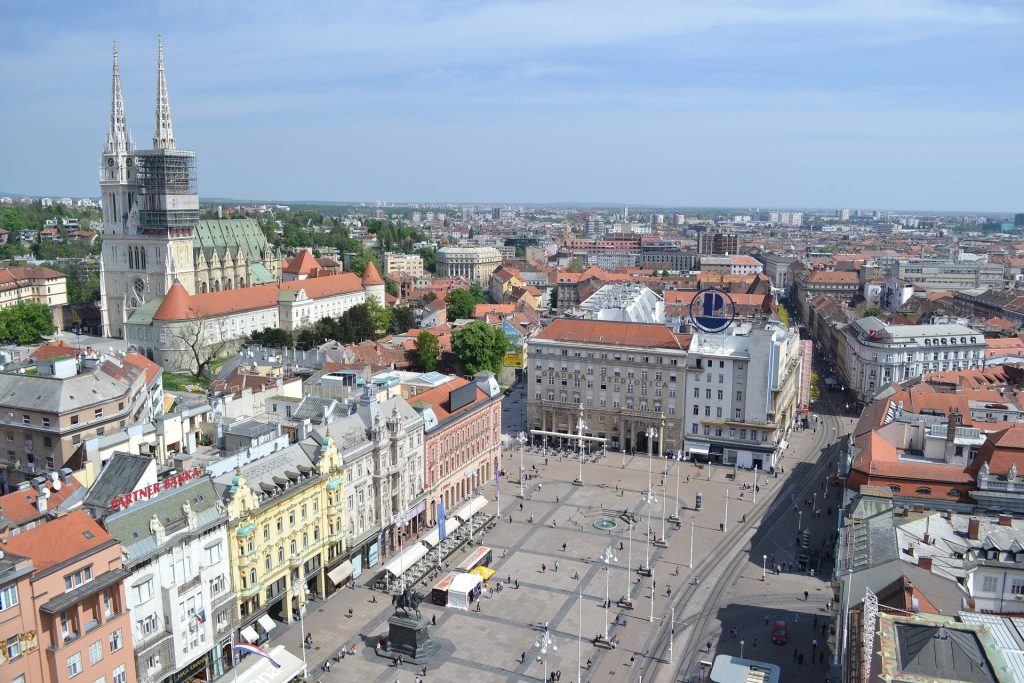Since traditional trade union marches and public protests could not be held because of the coronavirus epidemic, the Federation of Autonomous Trade Unions of Croatia (SSSH), the Independent Croatian Trade Unions (NHS) and the Matica Association of Croatian Trade Unions (MHS) organized a midnight performance to draw attention to the emigration of Croatian workers in search of more secure jobs and higher wages.
The state of workers’ rights in Croatia “has been swept under the carpet” because of the epidemic and squabbles between the prime minister and the president of the republic, NHS leader Krešimir Sever said.
In the last decade, about ten percent of Croatians have emigrated because of insecure jobs and low pay and have been substituted by foreign workers “who accept low wages out of desperation because the situation in their home countries is even worse,” he said.
Sever told the workers that they were not alone and that the trade union federations would not allow employers to be given favorable treatment. “Further flexibilization and deprivation of workers’ rights have to stop. Should the employers continue to insist on this, we always have mechanisms and ways to get people going, even in the present circumstances.”
The performance showed workers in a dilemma of whether to stay and fight for a better livelihood or catch the last train and leave.
Croatian politicians do not face this dilemma, nor do most of the employers whose only interest is a quick profit by keeping the price of labor low, SSSH leader Mladen Novosel said.
He said that the so-called “modern” Labour Act, advocated by the government, would not make the Croatian economy any more sustainable and would not create good jobs.
“Sectoral collective bargaining, good social dialogue, and free trade union organization are the only guarantees of a satisfied worker and employer,” Novosel said, announcing the signing of an agreement between the SSSH and the Croatian Employers’ Association on the start of collective bargaining for the public transport sector.
Matica leader Vilim Ribić said that the coronavirus crisis was a chance to change things in Croatia. “Thanks to the pandemic, Europe is changing – minimum wage rules are being introduced, employment measures are being strengthened, an entire set of social rights are being introduced, the insane policy of austerity, which has resulted in Croatian workers leaving the country, is being abandoned.”
Ribić said that in order to overcome the present crisis tax policy must be changed to ensure greater social equality and justice and greater dignity for workers. “That’s the only way for us to stop the emigration,” he concluded.
For more about politics in Croatia, follow TCN’s dedicated page.









